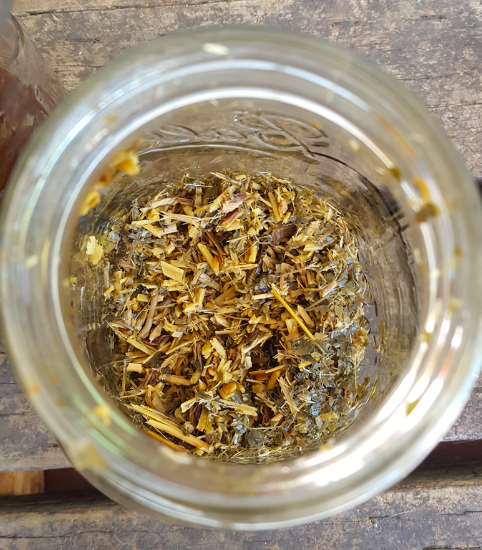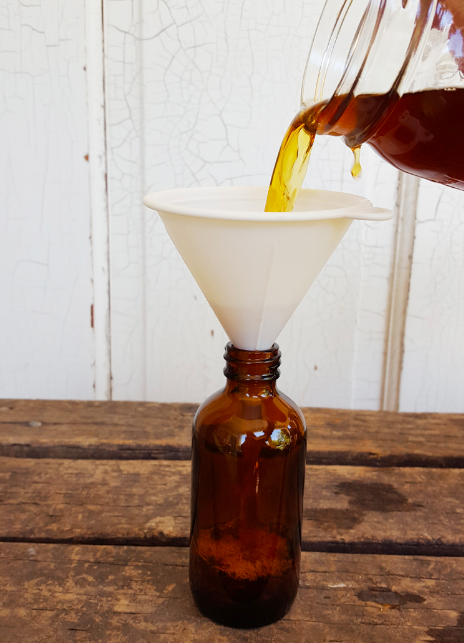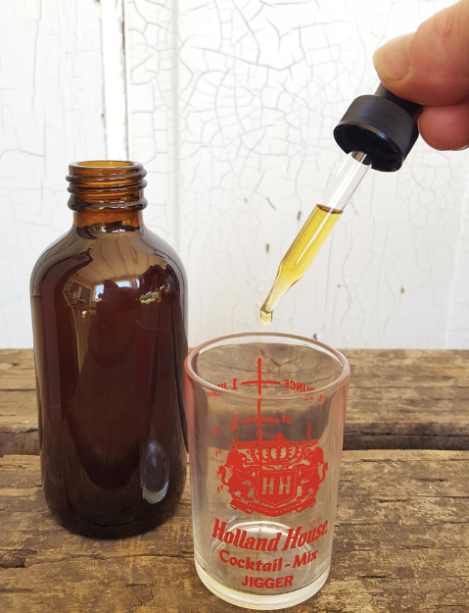By Angelina Williamson
Passionflower (Passiflora incarnata) is useful in treating anxiety, insomnia, upset stomach (especially related to stress), and high blood pressure. This plant is considered generally safe for most people for short-term use (no more than a couple of months according to some sources).
That said, if you take any sedatives or other medications, be sure to check with your doctor before taking this tincture to make sure there aren’t any contraindications.
Read on to learn how to make an herbal tincture with this fabulous herbal ally.

How to Make Passionflower Tincture:
Fill a pint jar about half full of dried passionflower and then cover it with 80 proof vodka.
The solvent range for optimal extraction of medicinal constituants is between 40-65 percent. Be sure not to use a proof higher than 100 or you may damage the plant’s efficacy.
Label your jar with the date you started this batch and put it somewhere where you won’t forget about it.
Shake it vigorously every day for two to four weeks.
Shaking it every day is important because it helps break down the cell walls of the plant material.
Next, get a fresh clean jar fitted either with a strainer or (as I’ve done here) with a wide-mouthed funnel fitted with an unbleached coffee filter, and pour the liquid through it. Alternatively, you can use cheese cloth or muslin. Shake the plant material into the filter or cheese cloth and squeeze as much of the liquid out of it as you can.

Decant your tincture into a dark bottle and label it. Store in a cool dark cupboard to maintain the best quality.
Your tincture is ready to be used in whatever recipe you like! For precise dosing information consult a reliable herbalist for advice, either with a personal consultation or from a trusted book or online source.

Are you interested in learning more about herbal medicine? Going the autodidact route is awesome, but if you’d like a really solid foundation in herbalism, it’s a good idea to take an accredited course.
If you liked this article, you may enjoy these as well:
+ 7 Medicinal Herbs to Grow In Your Garden
+ DIY Herbal Chest Salve for Flu Season
+ Homemade Elderberry Syrup Recipe
*NOTE: Please remember that herbs are medicines, and their effects can vary from person to person. A remedy that works well for you might not work for your child, partner, or neighbour, and some people may have allergies to certain plants. For example, people with ragweed allergies may react badly to chamomile, and those who are allergic to latex should stay away from birch.
No herbal remedy is guaranteed to cure a complaint, and it’s important to do your research properly before brewing up and drinking an infusion. It’s usually a good idea to speak to your healthcare provider to make sure that the herbs you’re interested in taking don’t have contraindications with any medicines you’re on, especially if you’re pregnant or nursing.
In addition, if you’re gathering herbs from the wild, it’s extremely important that you learn to recognise them properly. A lot of plant allies have toxic lookalikes, so if there’s any doubt about what you may be harvesting, don’t do it. Just buy a tea, tincture, or dried herb in bulk from an apothecary company like Mountain Rose Herbs instead.



7 thoughts on “DIY: Passionflower Tincture for Anxiety and Stress Relief”